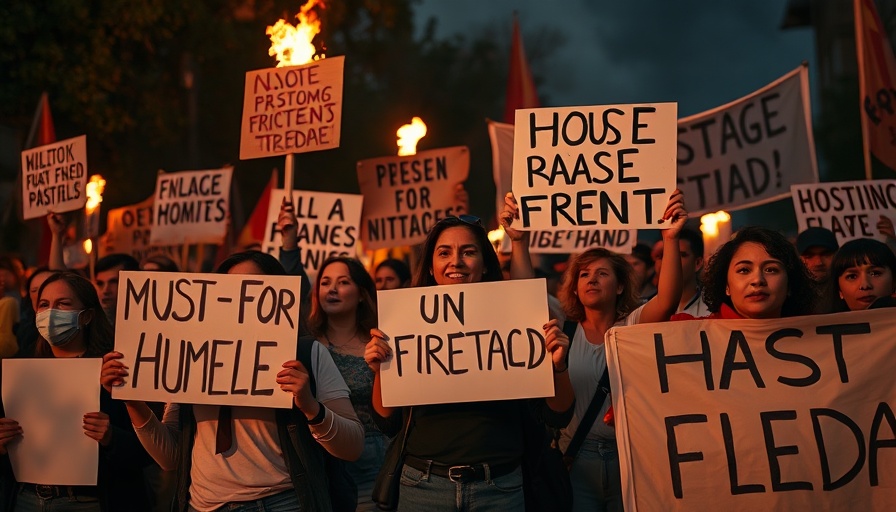
Trump's Controversial Claims Spark Tension with South Africa
In an unexpected turn during a recent meeting between U.S. President Donald Trump and South African President Cyril Ramaphosa, contentious claims regarding the treatment of white farmers in South Africa took center stage. Intended as a diplomatic engagement to ease U.S.-South Africa relations, the meeting quickly shifted as Trump asserted during a live news conference that white farmers are facing "persecution" and even claimed there is a "white genocide" occurring in the country.
At the White House, Trump presented a video containing images depicting crosses purportedly representing graves of murdered white farmers. However, the presentation was met with skepticism, as the origins and context of the images were widely disputed. In fact, numerous reports indicate that the crosses were part of a decorated protest, unrelated to any actual graves.
The backdrop for this heated exchange includes recently granted asylum for nearly 60 Afrikaners in the U.S., a move that Ramaphosa labeled as cowardice. While Trump highlighted the plight of white farmers in South Africa, Ramaphosa emphasized that his government does not endorse any form of violence and instead pointed to South Africa's democratic framework that accommodates diverse voices.
The Broader Implications of Trump's Assertions
Trump's narrative is not only controversial, but it carries significant implications for U.S. foreign policy and international relations. Claims of persecution resonate deeply in both American and South African contexts; however, they also risk undermining the realities of violence faced by many communities—both black and white—in South Africa.
By aligning with discredited narratives of genocide, Trump may inadvertently perpetuate divisive ideologies while alienating African nations trying to foster trade agreements and diplomatic ties. The fallout from this meeting could reverberate far beyond the immediate context, affecting economic relationships and the political landscape in both the U.S. and South Africa.
A Call for Clarification and Understanding
As discussions around these issues continue, it becomes crucial to engage with multiple perspectives and foster dialogues grounded in facts. Improved relations between nations hinge on understanding the nuances of each other's historical and social contexts, rather than succumbing to sensational claims that could lead to further conflict.
Reflecting on the Global Impact of Miscommunication
The meeting underscores the importance of clarity and responsibility in rhetoric, especially when addressing sensitive issues involving race and violence. Miscommunication can escalate tensions and hinder progress, which is something that all parties involved must consider moving forward.
 Add Row
Add Row  Add Element
Add Element 



Write A Comment